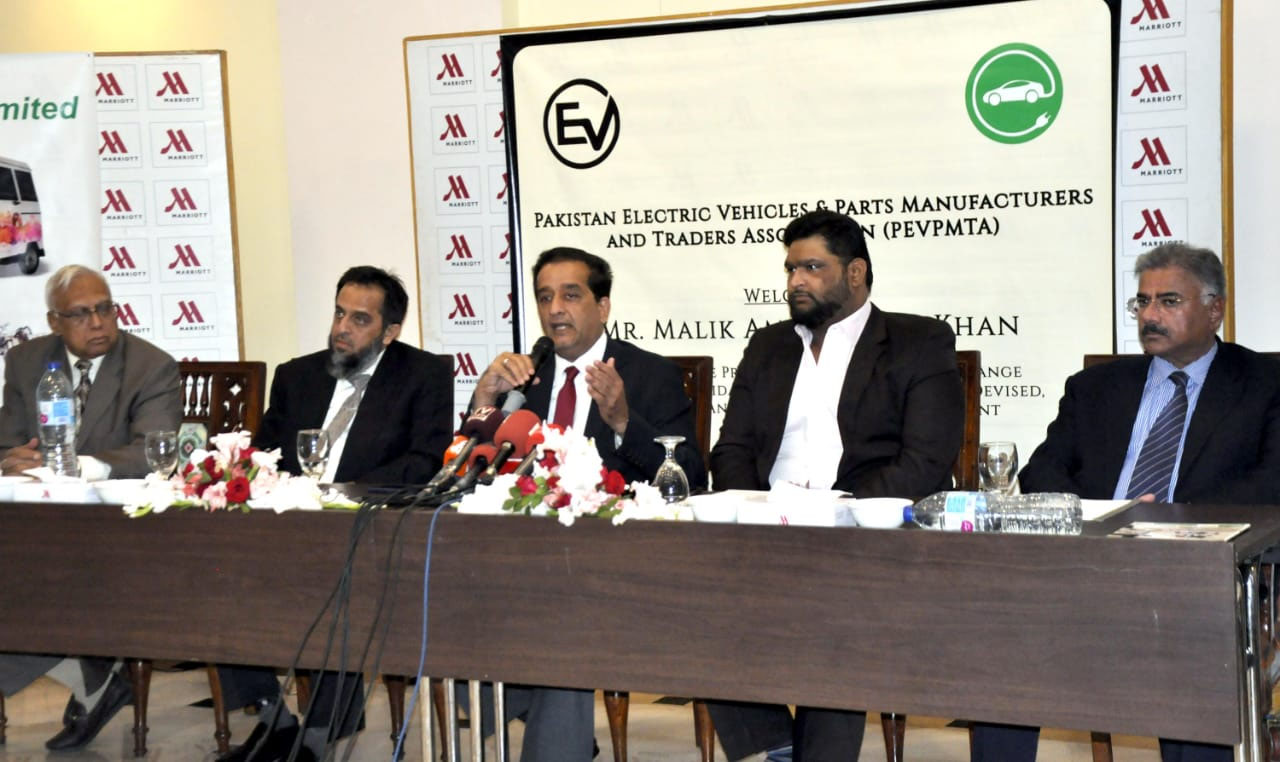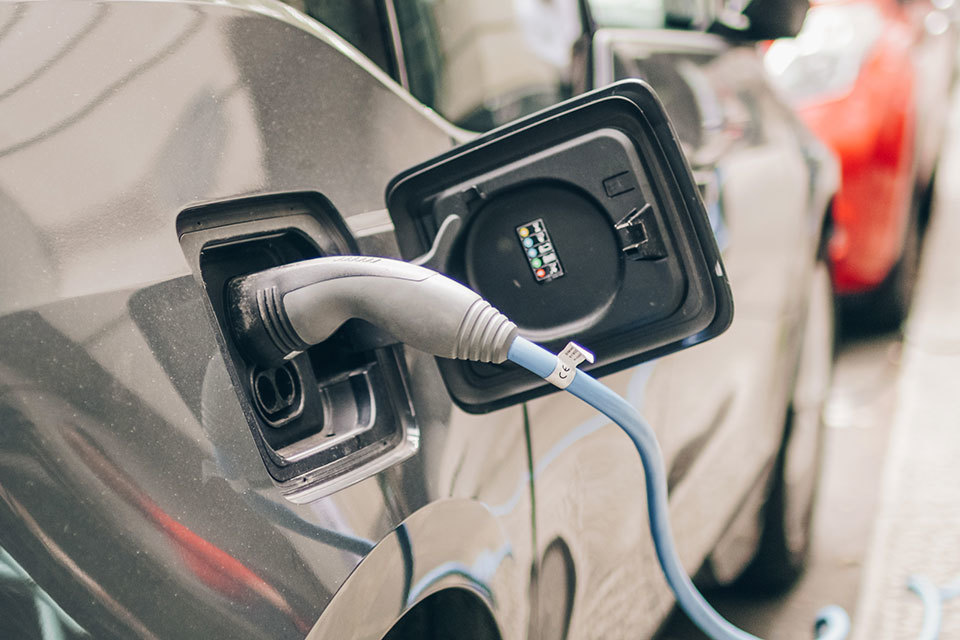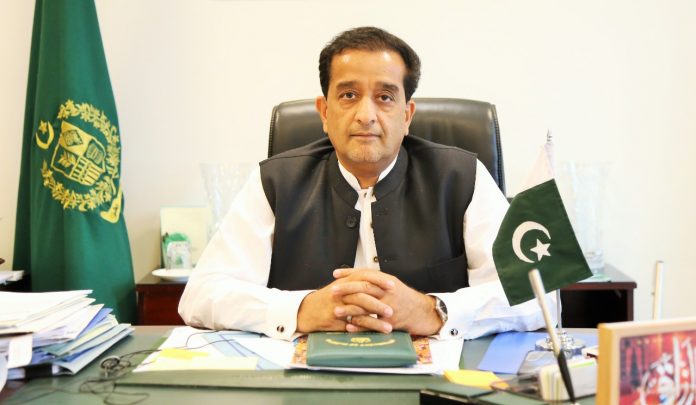Japanese automakers have called upon the government to offer incentives for local assembly of hybrid vehicles on the lines of those suggested for electric vehicles in the proposed 5-year EV policy.
Related: Stakeholders Lambast Interference in EV Policy Draft
In their comments on the draft policy circulated by the Engineering Development Board (EDB) among stakeholders, two Japanese auto assemblers in Pakistan– Honda Atlas and Pak Suzuki have urged the board, as well as the ministry of industries, to give same incentives to the old players for local assembly of electric or hybrid vehicles.
The two have urged the government to postpone announcement of the policy, drafted by the EDB, for bringing electric vehicles and hybrid technology into the country by encouraging their local assembly for at least one year in view of losses likely to be caused by the coronavirus pandemic. A Pak Suzuki executive while speaking to Dawn said:
“This will give us more time for brainstorming and the industry will also get much needed time to recover from the current situation.”
Both Honda and Suzuki have demanded that customs duty on CKD hybrid vehicles to be fixed at 1% at par with electric vehicles (EV). The draft policy has originally suggested 1% customs duty on import of EV-related CKD and 10% on hybrid-related CKD. They also called for slashing the suggested 30% duty on imported components for electric and hybrid vehicles to 10% for all industry players by withdrawing a 20% concession allowed to new entrants like Hyundai and Kia under the Auto Industry Development Policy (AIDP) 2016-2021.
A senior executive representing Honda Atlas while talking to Dawn said:
“Since the local assembly of both EVs and hybrid cars will require fresh investment in plants and machinery, the draft policy should not discriminate between the existing manufacturers and the new ones.”
Furthermore, the carmakers suggested, duty on the import of spare parts be cut down to 25% from 45%, and doubled to 50% on completely built units (CBUs). They have also asked the EDB to slashing half the sales tax on the industry to 8.5% in order to help reduce the costs and prices.
PAAPAM Reaction
The Pakistan Association of Automotive Parts and Accessories Manufacturers (PAAPAM) has opposed the idea of giving incentives to original equipment manufacturers (OEMs) for 5-years and called for incremental increase in import tariffs on parts and components for both electric and hybrid vehicles to be manufactured locally. According to an auto parts vendor:
“The policy should aim at encouraging indigenization of parts and components. To begin with, imports should not attract heavy duties. These should be levied gradually in order to create jobs and keep prices low.”
PAAPAM has also called for incentives for auto parts manufacturers. It said the policy should exempt from taxes on the establishment of plants for producing EV-related parts and equipment for local and export markets. PAAPAM also demanded that auto parts manufacturers be provided loans at 5% interest rate for creating facilities for development and manufacture of automotive EV parts and infrastructure development equipment.
PEVPMTA Reaction
Electric vehicle stakeholders have criticized citing that it will create hurdles for EVs instead of paving way for their introduction in Pakistan. According to General Secretary of Pakistan Electric Vehicles and Parts Manufacturers and Traders Association (PEVPMTA) Shaukat Qureshi:
“The players who have enjoyed their hold on Pakistan’s auto sector for decades are not willing to let any other player enter the market because they will face competition and have to innovate which they are not willing to do.”
Commenting on this, the Chairman of Association of Pakistan Motorcycle Assemblers (APMA) Muhammad Sabir Shaikh said:
“The existing companies, all of which are Japanese, want to alter the policy according to the present trend of running the automobile market in an oligarch way.”
According to Sabir Shaikh, it’s not fair to give same incentives to hybrid cars because they are run on fossil fuels and partially work on battery. He added that the old draft had proposed imposition of 1% import duty for the next five years; however in the new draft the existing players had suggested revision of duty structure every year which was a sure way to raise doubts among investors for the coming years.
Ever since the Prime Minister ordered the Ministry of Climate Change (MoCC) led by Malik Amin Aslam to formulate an electric vehicle policy, there has been a tug of war between two ministries since the existing players which are well attached with the EDB (Engineering Development Board) and its guardian the Ministry of Industries & Productions (MoIP) lead by Adviser to Prime Minister on Industries & Production, Commerce, Textile and Investment Abdul Razak Dawood, have opposed the development of EV policy citing that it was actually their domain to formulate the electric vehicle policy.
Related: EV Policy Set to Unleash a New Wave of Competition
It is pertinent to mention that the federal cabinet unanimously approved the EV policy drafted in November last year and indicated that the policy will be implemented in its full spirit by January 2020. However Local auto assemblers and their associated stakeholders showed serious concerns and termed the approval of the EV policy an “ad hoc decision”.

Despite the EV policy getting approval from federal cabinet, the policy is now being redrafted and implemented by MoIP through its attached department EDB. It’s still not sure which of the EV policy will be finally implemented in Pakistan– the one created by MoCC favored by fresh EV players or the one by MoIP representing the tried & tested Japanese players.

A computer animation professional with over 23 years of industry experience having served in leading organizations, TV channels & production facilities in Pakistan. An avid car enthusiast and petrolhead with an affection to deliver quality content to help shape opinions. Formerly written for PakWheels as well as major publications including Dawn. Founder of CarSpiritPK.com



